ARCS Foundation Honors Samueli School Graduate Student Scholars
Students recognized for academic achievement in science and engineering
ARCS Foundation, Inc., or Achievement Rewards for College Scientists Foundation, a not-for-profit corporation founded in 1958, is a national volunteer women’s organization dedicated to helping outstanding U.S. graduate and undergraduate students by providing scholarship awards in natural sciences, medicine, engineering and information and computer science. This year, the Orange County ARCS chapter is supporting six Samueli School graduate students.
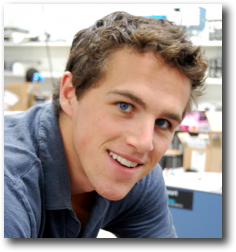
Nicholas Gunn, Arnold & Mabel Beckman Foundation Scholar
Fourth-year biomedical engineering Ph.D. student
Nicholas Gunn is a Ph.D. candidate in biomedical engineering and a senior member of the research group of G.P. Li, Ph.D., professor and director of the California Institute of Telecommunication and Information Technology (Calit2) and the Integrated Nanosystems Research Facility; and Mark Bachman, Ph.D., assistant professor of biomedical engineering?>
. He has a B.S degree in bioengineering from UC San Diego, and an M.S. degree in biomedical engineering from UC Irvine. His research focuses on novel microtechnologies for single cell manipulation, analysis of cancerous tumor cellular profiles and investigation of the tumor stem cell hypothesis. His awards include Best Student Paper at the 2008 American Society of Mechanical Engineering’s (ASME) 3rd Frontiers in Biomedical Devices Conference and Exhibition. ?>
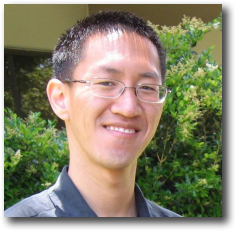
Christopher Hoo
Fifth-year materials science engineering Ph.D. student
Christopher Hoo received B.S. and M.S. degrees in materials science and engineering from UC Irvine. The goal of his Ph.D. research at UC Irvine is to design routes for the synthesis of fully transparent nanocrystalline ceramics with ultrahigh strength. Hoo co-founded the UC Irvine Chemical Engineering and Materials Science Graduate Association, serving as vice president. He is currently the vice chair for the American Society of Metals Orange Coast Chapter, and will serve as a delegate for the American Ceramic Society’s President’s Council of Student Advisors. He is a committed teaching assistant with plans to join academia as a faculty member in the future.?>
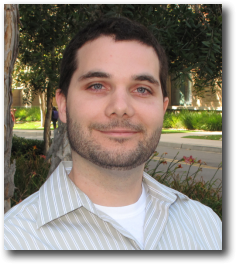
James Jenista
Third-year computer science Ph.D. student
James Jenista received a B.S. degree in computer science from the University of Notre Dame, and went on to work as a software engineer for Northop Grumman for four years. He earned his master’s degree in computer science at UC Irvine, and is now in his third year of research on campus. Jenista is researching techniques to parallelize single-threaded code under the advisement of Assistant Professor Brian Demsky, Ph.D., in the Department of Electrical Engineering and Computer Science. This research has the potential to impact future computer software, as future computer architectures will have many co?>
res, which are the parts of the computer processor that perform the reading and executing of instructions given by software, and it is difficult to utilize that large of an amount of cores with current parallel software development tools. The goal of his research is to take single-threaded code, which is by comparison very easy to write and debug, and produce a parallel implementation for multi-core hardware.?>
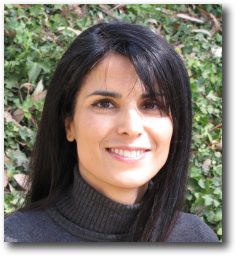
Zahra Noroozi
Final-year mec?>
hanical engineering Ph.D. student
Zahra Noroozi received a B.S. degree in mechanical engineering from Shiraz University in Iran, and also holds a second B.S. degree in information and computer science from UC Irvine.
Under the mentorship of Marc Madou, Ph.D., chancellor’s professor of mechanical and aerospace engineering, she is currently working towards completing her Ph.D. degree. Her research interest is in the design of microfluidics for integration of biological applications on small platforms. Her current project is the design and fabrication of an automated circular disk-based fluidics system for fast, sensitive and semi-quantitative detection of infectious diseases such as malaria and Lyme disease.
Her career goal is to obtain a teaching position at the university level while conducting research on Bio-Micro-Electro-Mechanical Systems related applications. She was a National Science Foundation Graduate Research Fellow for three years, and also won the Society of Women Engineers scholarship and the Outstanding Research and Student Awards during her time as an undergraduate student at UC Irvine. She taught "Introduction to Thermodynamics" in the summers of 2009 and 2010.?>
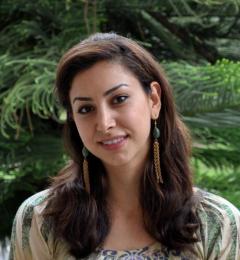 Sara Saedinia
Sara Saedinia
Fourth-year electrical engineering and computer science Ph.D. student
Sara Saedinia earned a B.S. degree in the Electrical Engineering and Computer Science (EECS) Department at UC Berkeley. After graduation she worked at Analog Devices, a semiconductor company, and subsequently entered the Ph.D. program in EECS at UC Irvine under the guidance of Professor Mark Bachman. Her research is pioneering the design of a microchip device which integrates microelectronics and microfluidics. This micro-device is designed to use the western blot technique to process very small volumes of protein to identify cancer cells (existing techniques are inefficient as they use very large protein volumes). The chip is completely automated and may be used by non-specialists in the field or the point of patient care.
?>
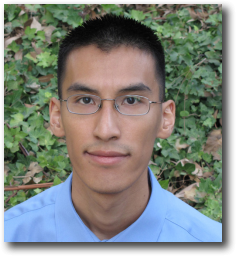
Henry Wong
Fourth-year biomedical engineering Ph.D. student
Henry Wong received his B.S. and M.S. degrees in biomedical engineering at UC Irvine. He is starting his fourth year as a Ph.D. graduate student in the Microbiomechanics Lab, led by William C. Tang, Ph.D., professor of biomedical engineering, where he is working on computational models of two biomechanical systems. His first project investigated the structure and placement of stent segments and their effects on the bending of an atherosclerotic femoral artery. He presented his results at the COMSOL Conference in October 2009. For his thesis, he is investigating the mechanical interactions between a migratory cell and the surrounding extracellular matrix and has presented some preliminary results at the ASME 2101 Summer Bioengineering Conference.?>
